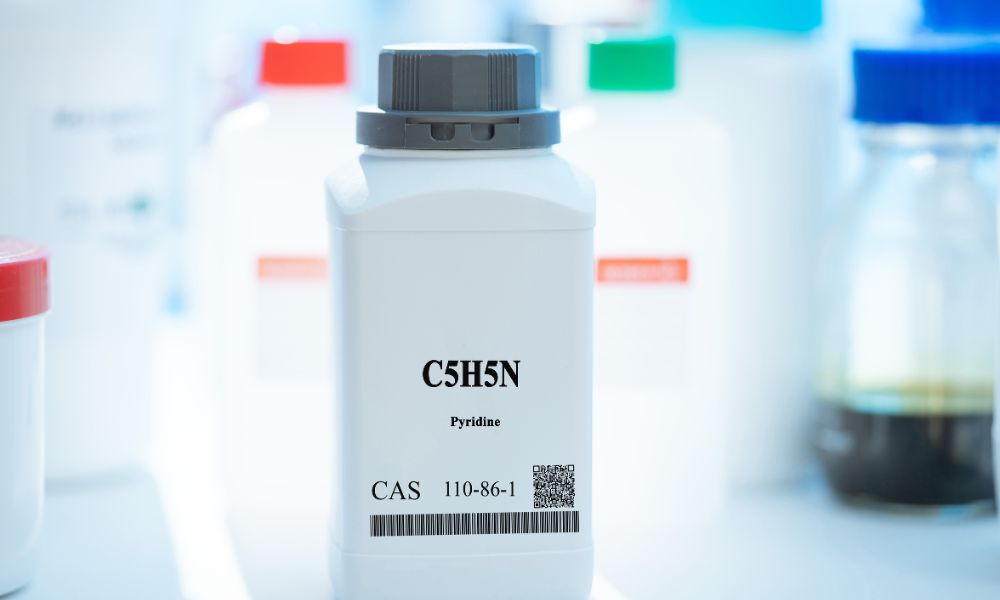Laboratory personnel often work with highly reactive substances and noxious fumes. Pyridine is an example of a reactive chemical that scientists and laboratory professionals use for many applications. Explore the best practices and precautions for working with pyridine to protect yourself and your team while handling this potentially hazardous material.
What Is Pyridine?
Pyridine is a common solvent and base reagent for synthesizing pharmaceuticals, agrochemicals, and industrial chemicals. It can undergo various reactions to create complex compounds. Pyridine is known for its strong fishy odor and several hazardous properties.
Using pyridine is generally unproblematic if you follow your lab’s safety guidelines. However, skin contact, ingestion, or inhalation can cause severe health issues, such as nausea, coughing, wheezing, and abdominal pain. It is a hazardous waste material with strict usage and handling procedures due to its potential side effects.
Best Practices for Handling Pyridine
Your lab should be ventilated before you or anyone else handles pyridine. When working with this chemical, be mindful of its volatile nature; keep containers tightly closed, and only use the chemical in certified fume hoods.
Remember to store pyridine in a cool, dry place, away from ignition sources. Per OSHA laboratory safety guidelines, containers for hazardous chemicals such as pyridine must have labels. Always store pyridine containers in a ventilated, cool environment away from humidity and temperature extremes. Keep in mind that pyridine can absorb water from the atmosphere, reducing its solvency strength over time.
Precautions for Working With Pyridine
Personal protective equipment is non-negotiable when handling pyridine. Wear chemical splash goggles, a lab coat, and gloves made of nitrile or neoprene, not latex. In case of eye or skin contact, flush the affected area with water for at least 15 minutes, then seek medical attention.
Inhaling pyridine fumes, even at low levels, can lead to headaches, dizziness, and respiratory irritation. Ingestion of pyridine can be life-threatening. Always walk your lab staff through these precautions, and avoid eating and drinking in the laboratory to reduce the chances of chemical ingestion.
Working with pyridine demands unwavering adherence to workplace safety protocols. These guidelines for handling pyridine are crucial for all laboratory staff to follow. Always stay vigilant in the lab when working with chemicals and solvents, and always use professional-grade materials. If you’re looking for professional-grade pyridine for your lab applications, you can find pyridine ACS wholesale at Post Apple Scientific. We offer a wide range of laboratory-grade chemicals and solvents for various lab applications. Browse our website to learn more.

